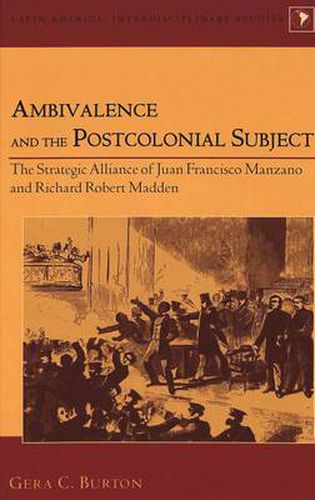Readings Newsletter
Become a Readings Member to make your shopping experience even easier.
Sign in or sign up for free!
You’re not far away from qualifying for FREE standard shipping within Australia
You’ve qualified for FREE standard shipping within Australia
The cart is loading…






Regarded as Cuba’s most mysterious poet, Juan Francisco Manzano continues to intrigue scholars across disciplines. Using a postcolonial approach, this book breaks new ground by exploring the poet’s connection with the Irish civil rights champion, Richard Robert Madden. Drawing on previously untapped sources, Gera C. Burton takes a fresh look at the relationship between these two extraordinary individuals to reveal facts considered critical in achieving an understanding of their association, with particular resonance for postcolonial studies. What emerges, regardless of their ambivalence, is the creation of a strategic alliance forged by the two writers in opposition to the colonial powers. Scholars in the fields of Latin American, postcolonial, and Diasporic studies, along with specialists in Cuban and Irish studies will welcome this significant contribution to the body of work on la gente sin historia - the people without a history.
$9.00 standard shipping within Australia
FREE standard shipping within Australia for orders over $100.00
Express & International shipping calculated at checkout
Regarded as Cuba’s most mysterious poet, Juan Francisco Manzano continues to intrigue scholars across disciplines. Using a postcolonial approach, this book breaks new ground by exploring the poet’s connection with the Irish civil rights champion, Richard Robert Madden. Drawing on previously untapped sources, Gera C. Burton takes a fresh look at the relationship between these two extraordinary individuals to reveal facts considered critical in achieving an understanding of their association, with particular resonance for postcolonial studies. What emerges, regardless of their ambivalence, is the creation of a strategic alliance forged by the two writers in opposition to the colonial powers. Scholars in the fields of Latin American, postcolonial, and Diasporic studies, along with specialists in Cuban and Irish studies will welcome this significant contribution to the body of work on la gente sin historia - the people without a history.